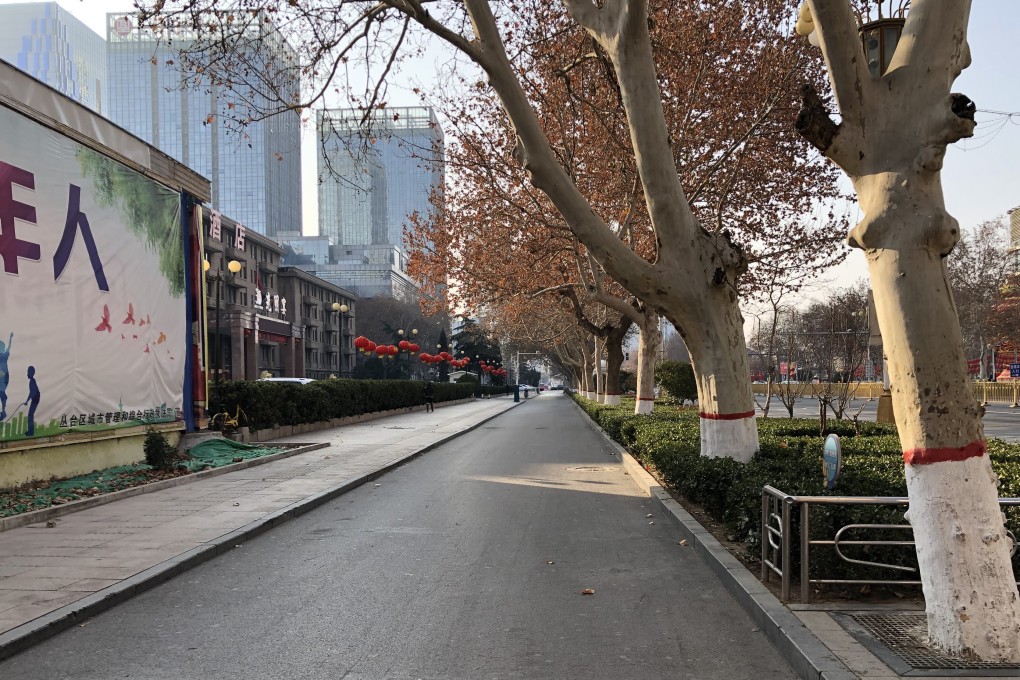Coronavirus: life in one Chinese city grinds to a halt with touchless KFC takeaway orders, closed communities
- Millions of Chinese were due to start work on Monday after authorities extended the Lunar New Year holiday to contain the spread of the new coronavirus
- But the situation in Handan city, some 800km from the epicentre of the outbreak, shows just how far life is from returning to normal in many parts of China

From touchless food orders to closed communities, life in one northern Chinese city hundreds of kilometres from the epicentre of the coronavirus outbreak has virtually come to a standstill.
In Handan, a city of 3 million people some 800km north of the virus ground zero in Wuhan, the streets were eerily quiet this week, even though the Lunar New Year holiday officially ended on Sunday.
Local government officials have been told to work from home, while factories have been ordered not to resume production until Monday, unless it is for badly-needed products, such as medical supplies.
Most restaurants, shops, cafes and bars are closed or operating on reduced hours, as are large shopping malls.
A KFC outlet in the city was among the few restaurants open, although customers were not allowed to enter and had to place orders via smartphone and wait for meals outside in a so-called “touchless order and takeaway system”.